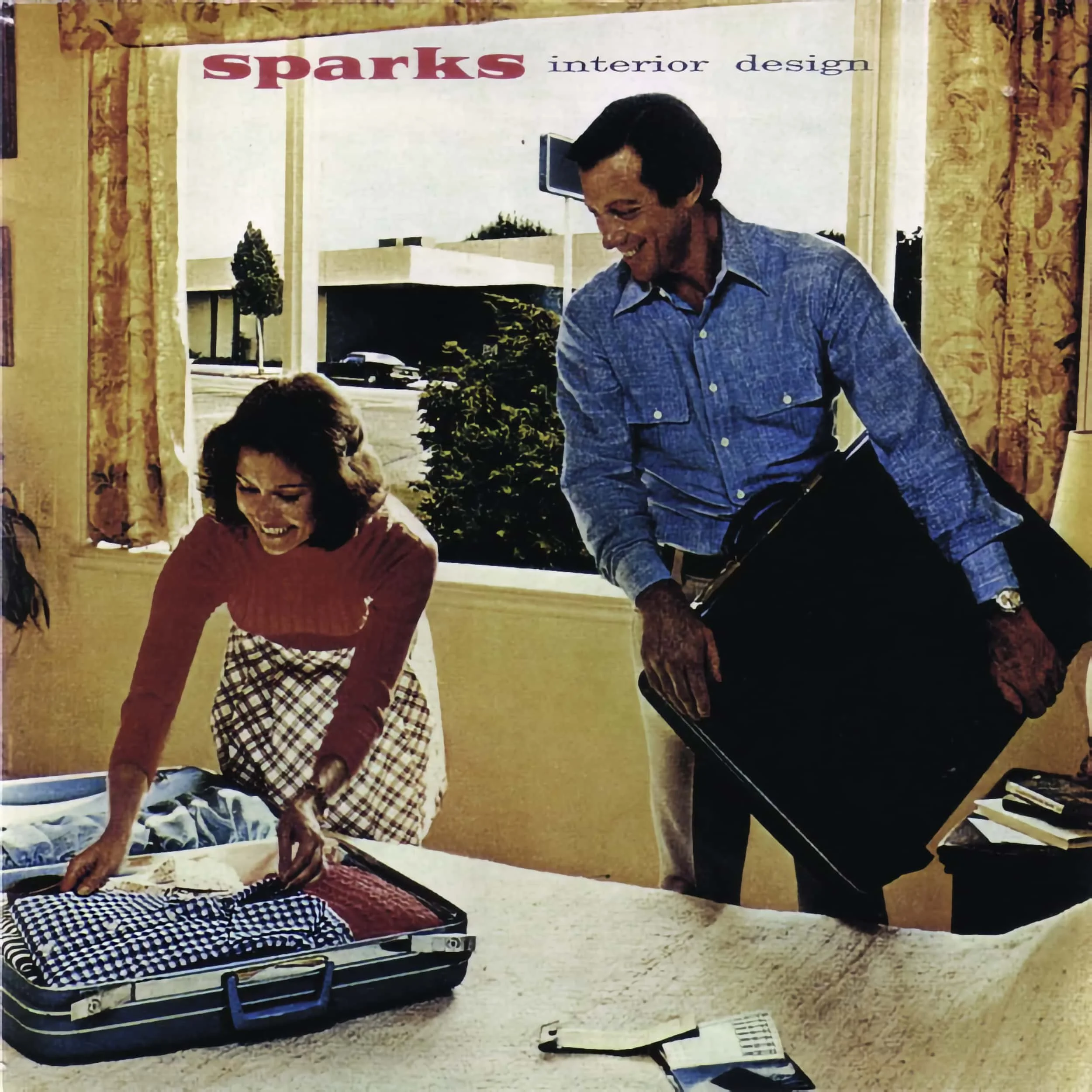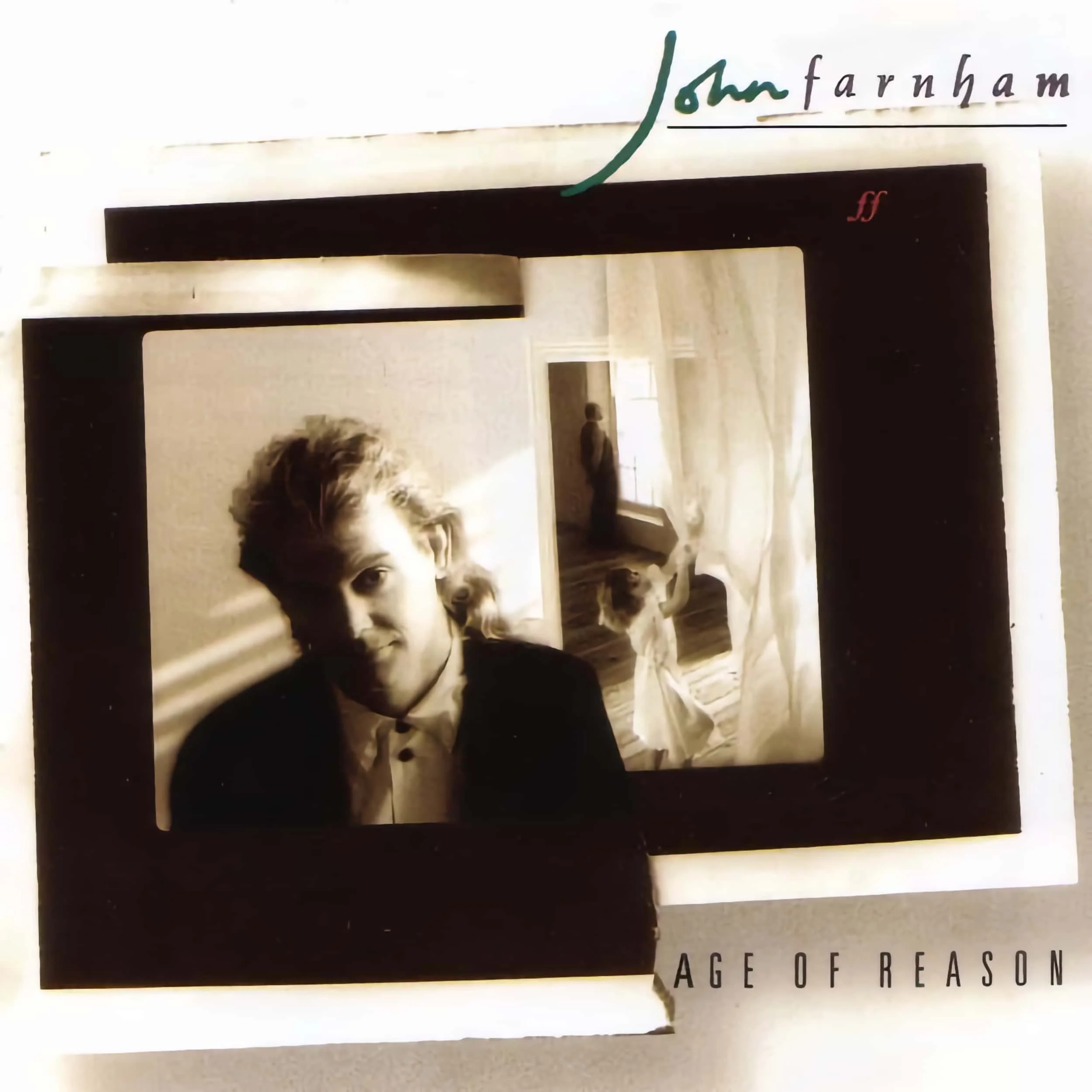Despite what we like to tell ourselves, sometimes an album requires multiple listens to truly resonate with our soul. Spark’s 1988 release, Interior Design, is one such record, one which took several listens for me to fully appreciate and welcome into my music library. Upon the first listen, one or two songs stood out, but the album’s structure initially seemed lacking. Yet, in an interesting dichotomy, I found myself returning to the album time and time again, allowing it to permeate into my conscious and subconscious mind. The result of such an endeavour is that Interior Design is now amongst my most treasured albums, one that I feel every music lover should hear, or revisit, for it’s an extremely underrated late-80s synth-pop release.
As the fifteenth studio album from the band, one would have assumed that success would have been a given, but perhaps the most lasting aspect of Sparks is that they’ve not only shifted their style throughout the years, but simultaneously stayed true to themselves. Whilst never a household name, per se, exceptional music has never been dependent on sales success at the record store. It isn’t that Sparks haven’t been successful, for their single releases have often performed well, but much of their longevity can be attributed to never giving up, as they’ve, to date, released an impressive 27 studio albums. Not all great, mind you, but consistently solid with many of their releases, such as Introducing Sparks (1977) and Pulling Rabbits Out Of A Hat (1984), ending up as honourable mentions for each subsequent year.
Where Interior Design differs, making its way to a top-tier release from 1988, is in its fluid musicality that’s akin to not only a greatest hits release, but a series of earworms that stay with you well after the album has ended. Yes, the very mention of an earworm may send some of you running for the hills, but I can assure you that when “Let’s Make Love” plays in your mind, you’ll be in a relaxed state of bliss.
What is quizzical, however, is the album’s artwork. It looks like the couple is about to go on vacation, rather than redecorating their interior design. It’s far from the worst album artwork of the era, and is certainly not worthy of being included in the list of The Worst (And Most Disturbing) Album Covers Of All Time. However, even more interesting is the fact that there are various album artwork designs available, as shown on Discogs, and none are particularly appealing. But let’s not judge an album by its cover, for this is one that transcends, musically, its mediocre visual presentation.
As for the sonic performance of the album, via Apple Music’s CD-quality lossless stream, it’s thoroughly engaging. So, hit play, and join me as I explore the songs that make up Interior Design (or the equivalent reissue, Just Got Back From Heaven, amongst others).
So Important is a fantastic opener, one that sets the tone for the record but is also true to the album’s overarching 80s synth-pop styling. However, if the rhythm doesn’t get you, you’re listening wrong, as this is one of the songs from the album that you’ll immediately connect with, finding your body moving involuntarily to what can be best described as a sonic masterpiece. The soundstage and multi-layered mix envelops the listener and showcases just how exceptional a stereo mix can be in a world where multi-channel Atmos mixes are becoming increasingly available. Despite that, So Important is Sparks at their very best, with a radio-friendly style, that ultimately, in my mind anyway, defines the band.
Just Got Back From Heaven is a little more subdued, but don’t let that deter you, for this is one of the most melodically smooth numbers you’ll ever experience. No, this particular song wasn’t going to set the dance floor on fire, but all songs need not be aimed at a club-based audience to be highly compelling. I tell you what “Just Got Back From Heaven” is ideal for: driving! Seriously, give it a try; the entire album, and particularly this song, as Interior Design is a quintessential driving album.
Lots Of Reasons picks up the tempo and will see you head-bopping and toe-tapping along. It isn’t necessarily the strongest song from the record, but there’s a little punk rock influence to be heard, with the associated attitude to boot, that really makes Lots Of Reasons a memorable album-only tune.
You Got A Hold Of My Heart is another somewhat mellow tune, but the romantic, ballad-style, with its polished production and floating vocal performance, makes this one of the best songs from the album.
Love-O-Rama has an offbeat opening, but once the song gets started, you wonder how you’ve ever lived without it. The rhythm is playful and, with a remix or re-interpretation, would be perfect for any club as the mid-tempo production delivers an idealistic musical bed. It’s a surprise that this tune hasn’t been sampled by one of the many hip-hop artists, for while I’m far from being musically talented enough to do anything with the song, I can hear the potential for a chart-topping hit a mile away.
The Toughest Girl In Town is a magical 80s tune. The mix is astonishingly good with a level of production and songwriting that’s nothing short of world-class. It offers a mature sound, but one that reminds me fondly of the high-production value of ABBA’s “Eagle,” from ABBA: The Album. It isn’t that the songs are similar; it’s the fact that both deviate enough from the other songs, on their respective records, that they stand out, becoming songs that will be remembered on their own as much as part of an album’s linear structure.
Let’s Make Love is a lovely 80s synth-pop tune that flows exceedingly well within the album’s structure, and while it isn’t necessarily the most intriguing song from the record, its earworm qualities ensure you’ll appreciate this song long after the album has concluded, as the rhythm and vocal styling quickly meld with the subconscious mind.
Stop Me If You've Heard This Before is less smooth and a little more jarring on the senses, particularly following Let’s Make Love, but the diversity is one of the reasons I not only feel Interior Design is a hidden gem, but is akin to a greatest hits release, as there’s a little bit of everything to appreciate from this record, thereby showcasing the musical prowess of the sibling duo.
A Walk Down Memory Lane is a killer tune with a musical bed that is perfectly designed for Russell Mael’s incredible vocal. Yes, it’s a little instrumentally darker than some of their other songs, but it’s got that 80s vibe that ensures those of us seeking a little nostalgia are musically fulfilled with a song that is equally timeless and of its time.
Madonna is one of the greatest closing tracks ever recorded. Not only is it highly compelling, but it incorporates elements of the songs that have come before it and is, therefore, my favourite tune from the record, as it always leaves me wanting more whilst allowing me to appreciate the music that I’ve just heard.
If “So Important” got the party started, by the time you finish listening to “Madonna” (not the artist, of course), you’ll feel compelled to keep the celebration going by playing the album again. It blends with your soul, becomes the soundtrack to your life, but most importantly, Sparks’ Interior Design is one of the most wonderful hidden gems of the 80s, and is deserving of being included in every music lover’s collection.






